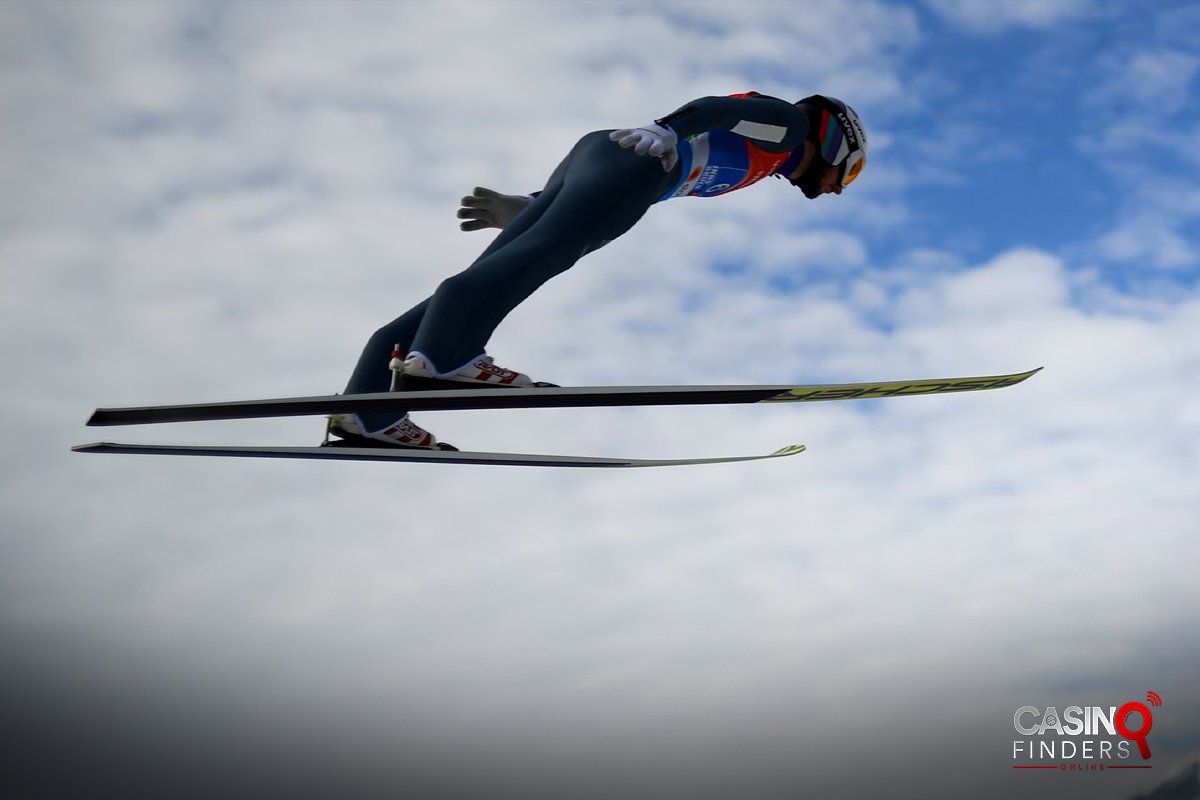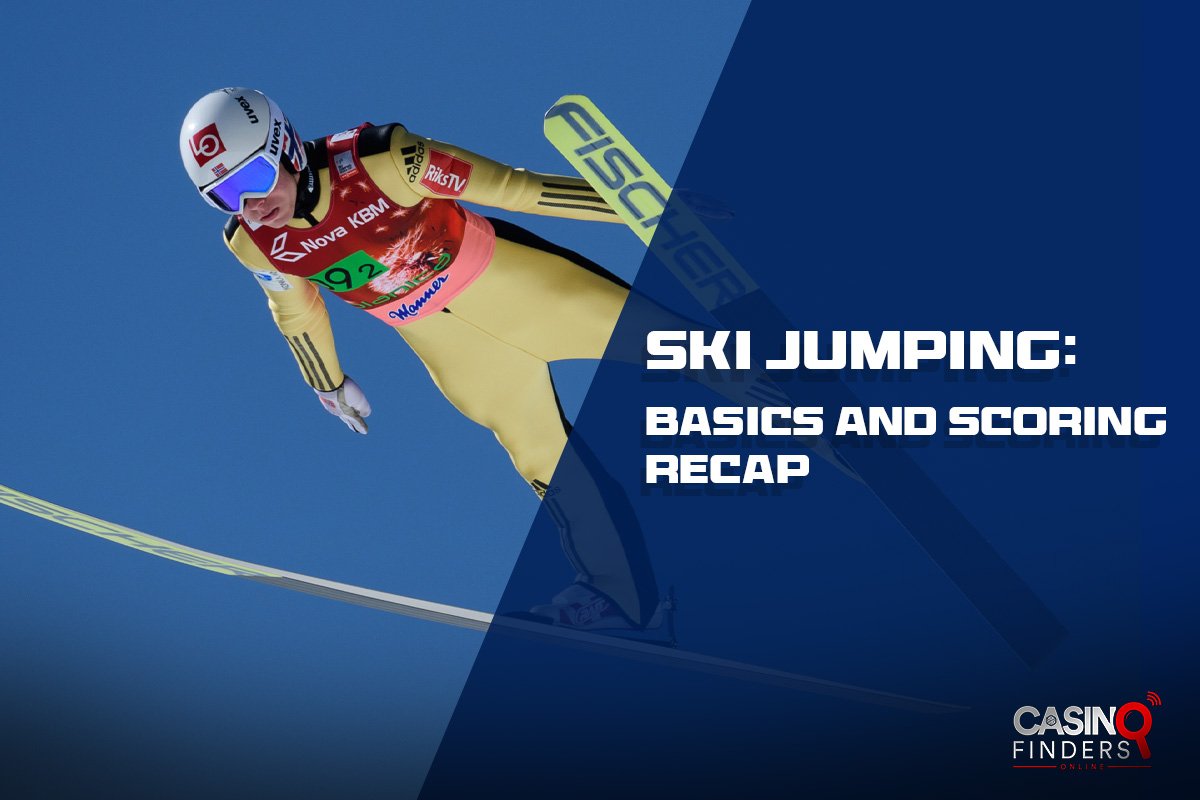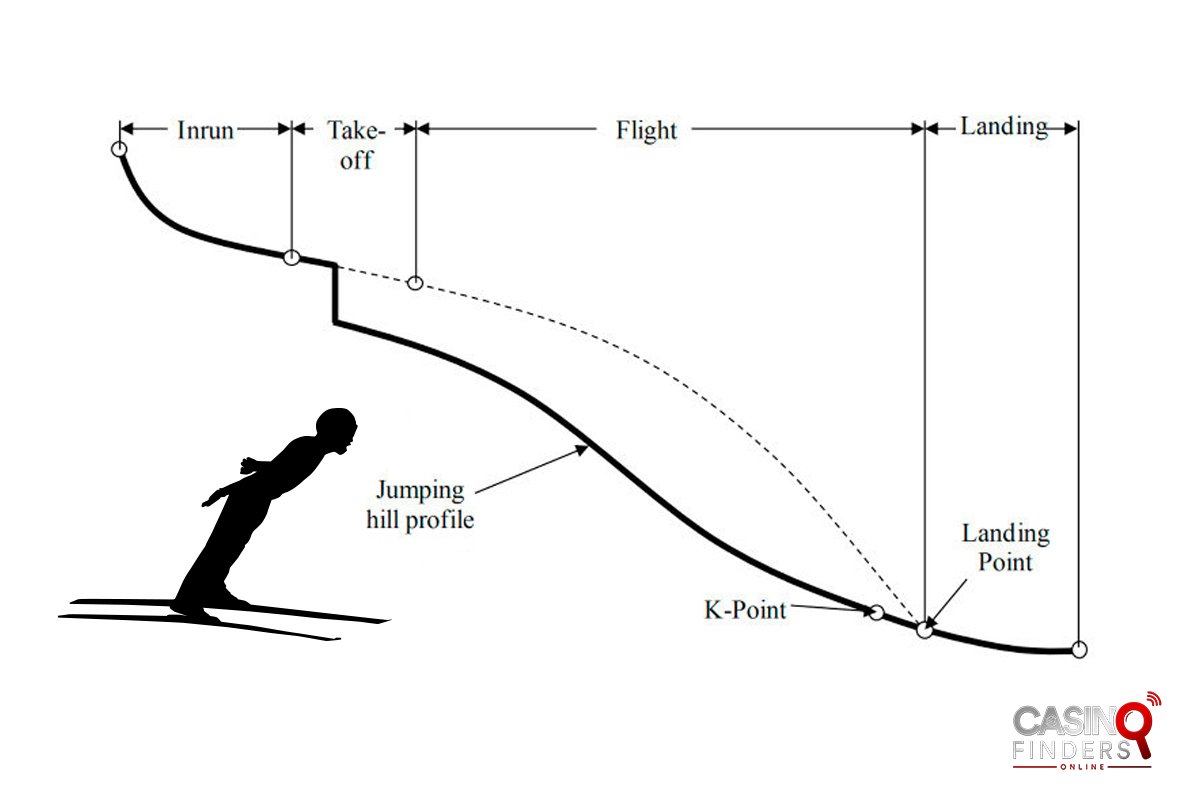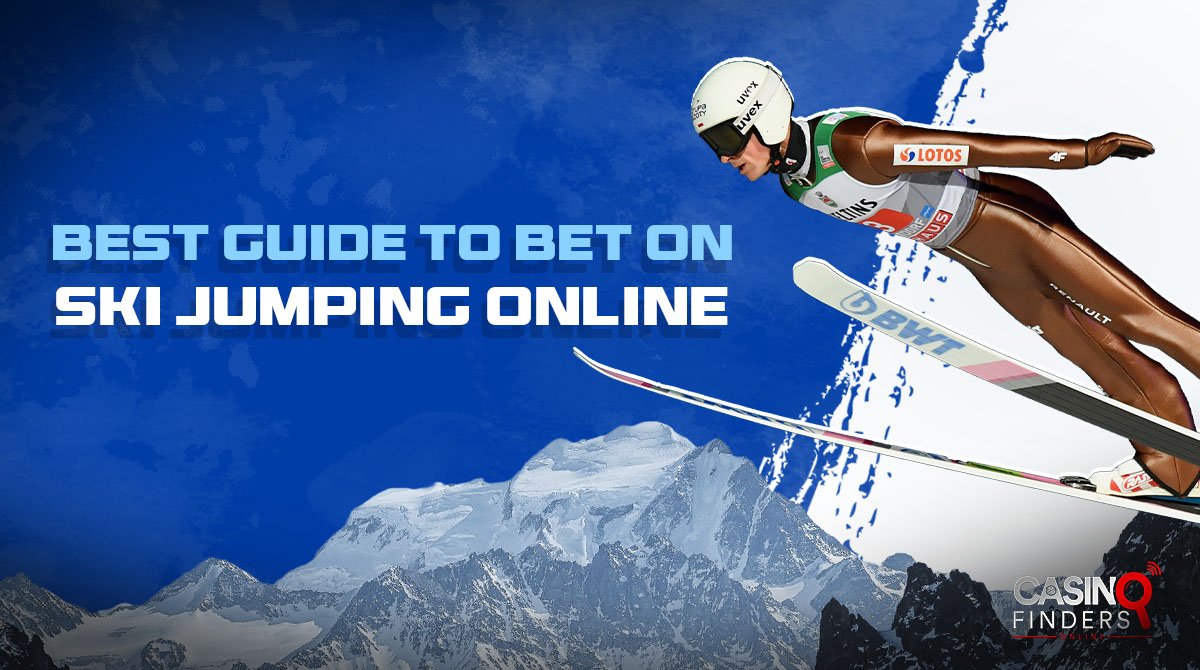Best 3 Betting Sites for Ski Jumping In Florida
Smaller tournaments and national ski jumping championships are held throughout the year, but the top online sportsbooks are unlikely to offer odds for such events. However, some of the best options, like BetOnline, allow you to request betting lines for specific events even if they do not already have them. This flexibility is among the features we have considered while rating the best ski jumping betting platforms for Floridians.
1. BetOnline Sportsbook: Best Overall Ski Jumping Betting Site

With more than two decades of experience and a solid record in the online gambling market, BetOnline is the one-stop shop for US and international punters.
Aside from a generous $1,000 sports welcome bonus, competitive odds, VIP program, 24/7 live chat support, and crypto gambling, you can request a specific competition with specific odds, and they will make it available. This is a great option, especially for more experienced bettors, allowing them to actually benefit from their experience and knowledge.
The only downside to BetOnline is that bettors from New Jersey are restricted. All the remaining US states, including Florida, are welcome to enjoy a top-notch online gambling at this website.
2. Bovada: Best for Olympics Competitions

Bovada is the second-best platform for betting on ski jumping events. The website is licensed and has a solid record for over a decade. There are multiple welcome bonuses to boost your bankroll, including a 50% sports and 75% crypto welcome bonus. Our in-depth Bovada Review walks you through every feature this betting platform provides.
The only downside to this website is that some US states are restricted, and split ski jumping competitions are not covered. You can only bet on ski jumping matches during the Olympic games.
Luckily, Florida is not among the restricted states at Bovada. So, if you live in the Sunshine State, you can easily sign up at Bovada and play for real money.
3. Sportsbetting: Best for New Jersey and High-Stakes Bettors

Having the same management team as BetOnline, Sportsbetting accepts punters from all US states. NJ residents can enjoy the BetOnline online gambling standard through this relatively new betting site, as the website accepts players from all US states, including Florida. The minimum deposit of $100 makes this platform an ideal sportsbook for high rollers.
With a generous $1,000 Free Play as a welcome bonus, more than a dozen different sports betting promotions, and countless sports betting options, you will enjoy online sports betting. Like BetOnline, you can request a ski jumping competition with specific odds, and they will make it available.
How To Bet on Ski Jumping Step-by-Step
I jump right into the betting part to make things quick and easy. If you are new to the sport, scroll to the recap section to learn about the basics and scoring system.
Step 1: Learn to Correctly Read Ski Jumping Betting Odds
The odds listing for ski jumping is similar to other sporting events, with moneyline odds being the most common. Moneyline bets involve wagering on the outcome of an event. In the case of ski jumping, the outcome would be an individual ski jumper winning or a team winning. Negative odds represent a favorite with a higher chance of winning, while a positive number suggests an underdog that is unlikely to win.
For example, suppose Stefan Kraft is listed as -150 against Jan Hörl with +120. If you bet $100 on Stefen and he wins the FIS Ski Jumping World Cup – Individual Large Hill competition, you win $66 plus your $100 initial wager. On the other hand, if you bet the underdog and he makes it, you win $120 for every $100 you wager.
Other common odds are over/under, head-to-head, and top 3 finish, which I will explain below.
The classic point spread bets are not used in ski jumping due to the scoring system in which margin of victory does not matter.
Step 2: Understand the Available Markets

One of the main advantages of betting on ski jumping is its straightforward betting markets and a relatively limited number of betting options compared to other sports. This means that even novice sports bettors can take advantage of value bets in these markets and have a chance to win. Here are the most popular ski jumping betting options to bet on individual events:
Prize-Winner
The “Prize-Winning Place” or “top 3 finish” bet involves correctly predicting which ski jumper finishes in the top three positions in a specific tournament or event. In this market, your bet pays out as long as your pick ends up in the top 3 spots.
“Podium finishers” can also be a betting option if the sportsbook offers or allows it.
Outright Winner: Match/Tournament
Outright winner is the simplest and most straightforward betting option in individual or team ski jumping matches. In this market, you will wager on the jumper who you believe wins the match or tournament. The tournament option will typically be available in futures betting options, where you can place your bets long before matches occur.
The outright winner bets are offered for men’s, women’s, and mixed-team events.
Winning Margin
While the classic margin of victory or point spread is not used in ski jumping, the winning margin market allows you to bet on the total “points or seconds” that the winner will win by. It is the same as the Totals or over/under market in other sports betting.
Head to Head
The head-to-head market is focused on two specific ski jumpers regardless of the overall outcome of the match or tournament. For example, you will bet on which of the two ski jumpers will have a higher overall score, even if neither of them wins the entire competition.
Props
Similar to other sports betting prop bets, you can bet on unusual events related to ski jumping matches and tournaments. Such bets are completely independent from the outcome of matches. For example, you would bet on the weather conditions, the type of wind on the day of a given match, or even the winner’s nationality.
Match Bets
Match betting allows you to bet on, for example, the clash of Great Britain and Norway. This market adds extra excitement to the sport by allowing you to bet on which team, jumper, or country wins against the other.
Step 3: Understand the Ski Jumping Categories
Ski jumping is divided into two main categories: individual and team events. These categories exist for men and women separately.
Individual events include:
- Large Hill Individual: This is the most common type of ski jumping event and is also the one featured in the Winter Olympics. Skiers jump from a large hill, aiming for the farthest distance and performing stylish aerial maneuvers.
- Normal Hill Individual: This event is similar to the large hill individual, but the hill is smaller, resulting in shorter jumps.
Team events are:
- Team: Teams of four skiers compete, with each team member taking a jump. The team’s total score is based on all four jumps’ distance and style points.
- Mixed Team: This relatively new event features teams of two skiers, one man and one woman. The competition format is similar to the regular team event.
Step 4: Pick the Right Event to Bet on
Major ski jumping and winter sports events are not year-round. So, you should know when sportsbooks release odds to find the best value. The biggest ski jumping events are:
- Winter Olympics: Ski jumping has been a crowd-pleaser at the Winter Olympics since its debut at the very first games in Chamonix, France, back in 1924. The normal hill competition joined the program in 1964 at the Innsbruck Games, offering another platform for ski jumpers to showcase their skills. Then, in 1988, the team event was added, bringing a whole new dimension of strategy and camaraderie to the Olympic ski jumping scene.
- FIS Ski Jumping World Cup: An international circuit throughout the winter season, typically from November to March. Ski jumpers compete at various locations worldwide, earning points based on their performance. The jumper with the most points at the end of the season is crowned the World Cup champion.
- FIS Ski Flying World Championships: Held every two years, this competition features jumps from even larger hills than those used in the World Cup, resulting in genuinely awe-inspiring flights.
- Four Hills Tournament: This annual tournament takes place in Germany and Austria over four consecutive days. Ski jumpers compete on four different hills; the overall winner is the one with the highest combined score from all four jumps.
Ski Jumping: Basics and Scoring Recap

Ski jumping is a winter sport where skiers must achieve the farthest jump after sliding down a specially designed curved ramp. However, the jump length is only one factor in the skier’s overall success. It is a daring and exciting sport that requires a combination of athleticism, skill, and courage.
Here is a quick breakdown of the sport basics and scoring:
The Venue

Ski jumping takes place on a specially designed hill, which consists of three main parts:
- In-run: The ramp that skiers speed down to gain momentum for the jump.
- Take-off table: The end of the ramp where skiers launch themselves into the air.
- Landing hill: The steep slope where skiers aim to land safely.
The Jump
Ski jumpers with the longest jump do not win; they must also maintain a stylish and controlled form in mid-air. This involves contorting their bodies and skis into specific positions to maximize lift and distance.
Scoring
There are three parts to scoring in ski jumping:
- Distance: Points are awarded based on how far the jumper travels down the hill.
- Style: Judges award points for a jumper’s form in the air, considering factors like body position, ski angle, and telemark landing (a specific stance used upon landing).
- Wind conditions: Wind can make a big difference in ski jumping, affecting how far a jumper can travel and how much lift they get during their flight.
How Do Judges Score Ski Jumpers?
The distance the player covers, their overall form and style during their airtime, and wind conditions award them points by 5 judges. Each jumper gets two jumps, and they must land them properly, i.e., without allowing their hands to touch the ground when they fall.
Wind conditions are constantly monitored as the speed and type of wind dramatically affect the jumpers’ performance. A tailwind blowing from behind the jumper acts like an extra push, giving them more lift and potentially helping them travel farther. This can be advantageous but makes it harder to safely control the jump and land. A headwind acts like an opposing force, pushing against the jumper and reducing lift. This can make it harder to achieve a long jump and may require adjustments to the jumping technique. Based on wind readings, jumpers might receive bonus points for headwinds (giving them a disadvantage) or have points deducted for tailwinds (giving them an advantage).
Final Thoughts
Ski jumping is among the 15 Winter Sports with a niche audience and bettors. While ski jumping betting markets are straightforward, you should remember some tips for a successful wager.
First, learn the sport basics and understand the scoring system and the format of each competition and tournament. Second, you must research and stay updated on players’ performance, records, injuries, and weather conditions. The third tip to remember is to learn the basics of sports betting to effectively read and analyze odds. Since some top sportsbooks allow you to request your odds to bet on, you can profit by properly analyzing players and setting your own odds. Some knowledge can give you a huge edge over other bettors in such niche betting markets.
Last but not least, never blind bet!





 Written by
Written by 



 Cashback Bonus
Cashback Bonus



















